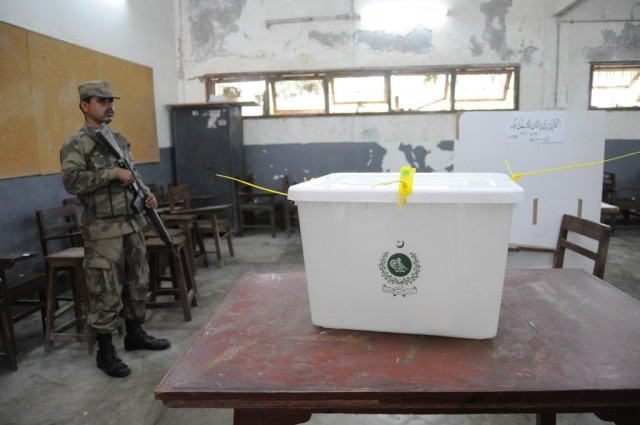In the aftermath: Polling disputes to be questioned in election tribunals
SC lawyer says there is no provision for appeal in the apex court.

PHOTO: MOHAMMAD NOMAN/EXPRESS
The provincial government has decided to follow the Local Government Act 2013 in letter and spirit in handling election disputes.
Even though the official results of LG elections will be announced on June 7, the government has introduced a procedure whereby petitions over rigging can only be filed in election tribunals. As a result, if people have any complaints, they can have their grievances addressed through these mechanisms.
The last word
Speaking to The Express Tribune, Faheem Wali, a Supreme Court lawyer said more petitions are likely to be filed in election tribunals this time around as compared to other elections.
“A majority of these cases are likely to involve concealment of assets in nominations papers,” he added.

However, Wali said there are no provisions for appeals in the election rules for local government polls.
“This means the election tribunal is likely to have the final word in petitions for local government elections,” he said.
According to Wali, other appeals concerning elections on a provincial level are filed in the apex court.
Modus operandi
Under the law, election disputes can only be questioned in election tribunals. According to Section 87 of the Local Government Act 2013, elections can only be called into question through a petition filed by a candidate. Furthermore, the election commission will be expected to appoint an officer to an election tribunal to hear the proceedings through a notification.
Section 87(3) states every election petition shall be made and tried in a manner specified by the election commission. Similarly, Section 87(4) indicates the election tribunal will have all the powers of a civil court trying a suit under the Code of Civil Procedure 1898.
According to Section 44(2) of K-P Local Councils Conduct of Elections Rules 2013, an election petition shall be presented to a tribunal appointed by the commission within twenty days of the publication in the official gazette of the name of the returned candidate. This must be accompanied by a receipt showing that the petitioner has deposited Rs1,000 in favour of the commission as security for the costs of the petition.
Section 47 states the election commission may appoint as many tribunals as necessary to hear these petitions. According to Section 47(2), the tribunal will consist of a person who has previously served as a district and session judge or additional district and session judge.
Past and present
During the May 2013 general elections, three election tribunals were established in the province to hear election petitions for provincial and national assemblies’ seats. They were set up under section 57 of the Representation of the Peoples Act (RPA) 1976 which deals with the appointment of tribunals.
Published in The Express Tribune, June 1st, 2015.













COMMENTS
Comments are moderated and generally will be posted if they are on-topic and not abusive.
For more information, please see our Comments FAQ